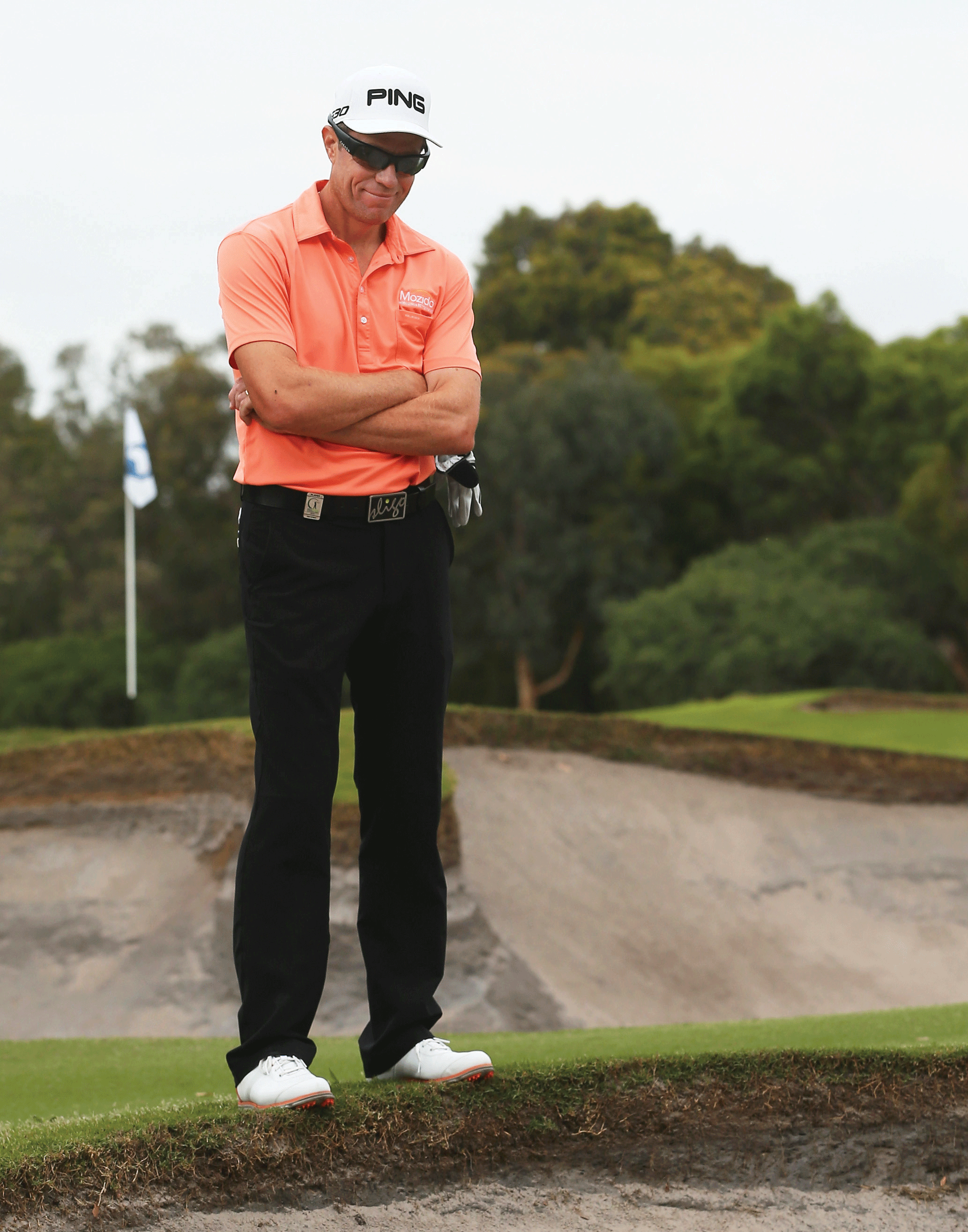ONE of the most overlooked areas in golf is the mental-side of the game.
The majority of amateurs I play with give little thought as to how they think on the golf course, instead spending their time worrying about the golf swing and how it needs improvement to play better. In some cases they do need help with their swings, but 99 per cent of the time if they just thought better on the golf course, they’d lower their score by two or three shots at the drop of a hat.
I know growing up I certainly wasn’t concerned about how I should think on the course. I only cared about where that little white ball was heading and where I didn’t want to hit it. That probably explained why the lowest handicap I reached as an amateur was two. Not bad, most golfers would say, but when you want to become a successful tour pro, a two handicap isn’t going to set the world on fire.
After finishing high school I completed an apprenticeship at the Marangaroo Golf Course in Perth to become a golf professional, because all I wanted to do was play the game for a living, but at that stage I was nowhere near good enough. For the next few years I struggled on the pro-am circuits throughout Australia with very little direction to my game. Then, at the age of 24, after another disastrous tournament on the WA pro-am circuit (where I shot 82-86-88 in a 54-hole tournament), my wife and I decided to give my game a complete overhaul. If things didn’t work out after that then it was time to find something else to do.
That’s when I met Neil Simpson, the head pro at Mt Lawley Golf Club, to help with my swing and Neil McLean, a clinical psychologist at the University of WA, to assist with my mind. Both Neils were tremendous influences on my career and I can’t thank them enough for their guidance.

One of the most valuable things I learnt throughout my career was that it really didn’t matter how well you were swinging the club if you weren’t thinking properly. Give me a golfer with a great mind and average physical ability over one with an average mind and great physical ability, any day of the week. Now, at the tour level most pros have very solid all-round games. It’s the ones with the strongest minds that are the most successful.
The key to a strong mind is having the processes in place to begin with when things go wrong on the golf course. When I first started working with McLean he began by instilling in me the necessary tools I would use over the course of my career that would allow me to play my best golf possible, especially when I wasn’t playing particularly well.
Over the years I refined these processes to work for me so I had the utmost belief and confidence in myself when I needed to the most. At the most basic level, no matter what shot I attempt to execute, I always ask myself the same question: “What do I have to do right now?”
This one question brings my mind into the present moment so I can focus on the task at hand, nothing else. Then I move into my process, which starts with a pre-shot routine.
Over the coming months in this column I’m going to cover the various processes to help improve your mental game and how they allowed me to play at the highest level successfully. For the moment, though, pay more attention to how you’re thinking during your next round of golf and try to worry less about your swing. Being ‘aware’ of how you’re thinking is the first step … and your score might just surprise you.
To get your copy of Nick O’Hern’s new book Tour Mentality: Inside the Mind of a Tour Pro order online at www.nickohern.com.



